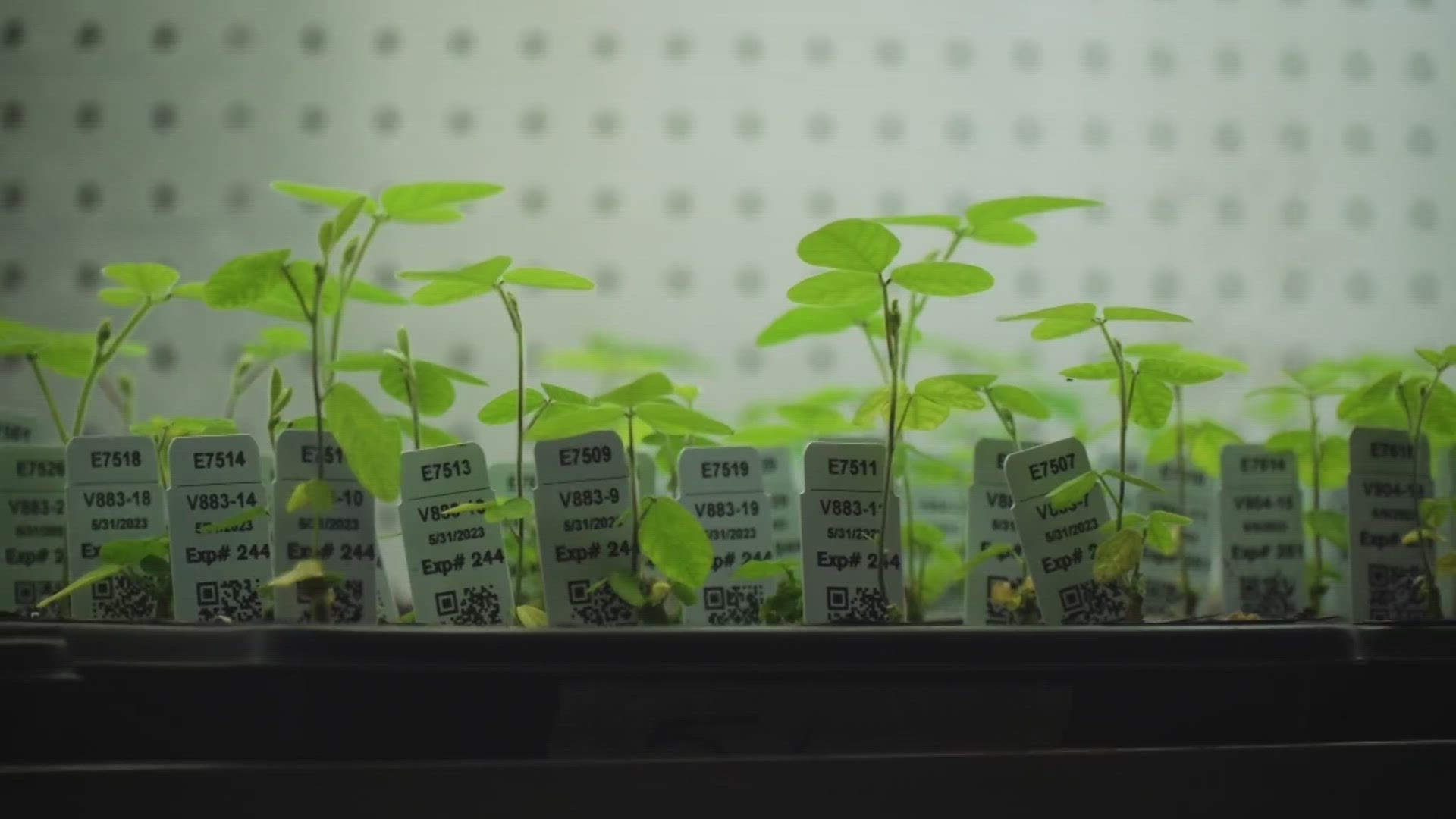DAVIS, Calif. — The face of agriculture and farming is advancing with help from a local technology company. InnerPlant, out of Davis, is now helping plants communicate their needs to farmers.
"We help the plants express through an optical signal in their leaves, when they're experiencing something like if they're attacked by fungal pressure, or insects, or they need more nitrogen," said Shely Aranov, co-founder of InnerPlant.
A group of researchers are inserting a line of coding into soy beans in an attempt to find which plants show traits of communication. Through trial and error they find what they're looking for and the specific soy bean is replicated.
So how does it actually work? The plant communicates through its leaves that illuminate in the dark. To see that illumination or "glow," satellite images are taken of a farm overhead. It's not possible to see unless using specific glasses or satellite imagery.
The fluorescent proteins in the DNA coding for these soy beans are very well studied. If you've heard of bioluminescence, it's a similar concept. Bioluminescent plants are often found in the ocean through marine bacteria, or in fungal plants. Extracting the protein that causes this "glowing" signal is inserted in other plants, allowing them to communicate.
If a section of farmland displays a glow through picture images, farmers will be able to treat that specific plot of land, rather than spraying pesticide across the entire farm.
"[Farmers] can increase their yields by eliminating all the stresses early. They can also eliminate the unnecessary use of chemistry. You don't want to spray everywhere, you just want to spray it where you need it," said Aranov.
InnerPlant says they're expecting their soy beans to be planted at a 15,000 acre farm in Iowa some time in 2025.
Sixth generation farmer Ben Riensche says he and his family have always been progressive farmers looking toward the latest technology. It's not just providing food to the world, but taking care of his employees and family.
"We get one crop a year, I get one paycheck here, it's the crop I'm standing in, I really don't have much margin for error," said Riensche.
For Aranov, she says the technology could be a game changer when it comes to food waste.
"We currently lose about 40% of our yields to pathogens globally. Think about it, we can almost double the amount of food we produce and do nothing different, right? Just have better tools," she said.
Many are wondering if the the genetically modified soy beans are safe, and InnerPlant says they are.
"The plants are already USDA approved and we are currently working through the data-gathering process required for FDA approval, which is voluntary," the company said in a statement to ABC10.



















